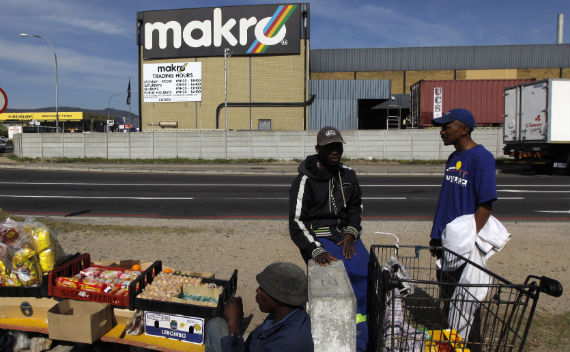Africa, Globalization, and Foreign Investment
More on:

I recently wrote about the untapped potential of foreign investment in South Africa. A reader of this blog, Jim Sanders, responded with an insightful comment, which I thought would be worth sharing.
Jim writes:
"I’m a little dubious about the view, which one hears so often, that establishing a foothold in South Africa facilitates expansion into the continent by firms with little or no African experience. (And I have to wonder about the way in which “Africa’s enormous untapped economic potential” is accepted as an article of faith, without examination.)
This is what Walmart wants to do with its Massmart acquisition—use South Africa as “a springboard to reach low- and middle-income consumers.” A Financial Times article last month took a critical look at this issue. One problem is that , while there are “pockets” of consumers with reasonable spending power in Africa, a Nedbank Capital analyst reportedly said that there is really very little purchasing power in the outlying areas. Another obstacle, especially for retail, is the difficulty in moving goods quickly and cheaply to multiple destinations, owing to poor transport links and murky property markets. Logistics and bureaucracy emerge as key challenges. The FT notes that mining companies have succeeded because they built their own infrastructure. But Walmart, which the writer judges, “as an inexperienced outsider in Africa, could find itself out of its depth.”
At least part of the reason for the enthusiastic and uncritical chop-licking over Africa’s business potential may have to do with Thomas Friedman’s view of a globalized future. If so, I would recommend that you have a look at Michael Shermer’s article, “Globaloney, Why the world is not flat…yet,” in the August issue of the Scientific American. Shermer cites University of Navarra professor Pankaj Ghemawat who has figured out that only 10-25 percent of economic activity is international, and most of that is regional, not global.
He provides the following percentages (of the total in each category): international mail: 1 percent; international telephone calling minutes: less than 2 percent; international internet traffic: 17-18 percent; foreign-owned patents: 15 percent; stock market equity owned by foreign investors: 20 percent. Ninety percent of the world’s people will never leave their birth country. “Some flattened globe.”
Globalization theories fail to account for distance (geographic and cultural) factors. For example, “a 1 percent increase in the geographical distance between two locations leads to about a 1 percent decrease in trade between them.” Likewise, “two countries with a common language trade 42 percent more on average than a similar pair of countries that lack such a link.” “Countries sharing membership in a trade bloc…trade 47 percent more than otherwise similar countries that lack such shared membership.”
These factors have a bearing on a “nuanced understanding” of the ‘real’ [have you noticed how popular this word is these days?] prospects of the African business climate, but I suspect the lust for profits overrides them."
More on:
 Online Store
Online Store